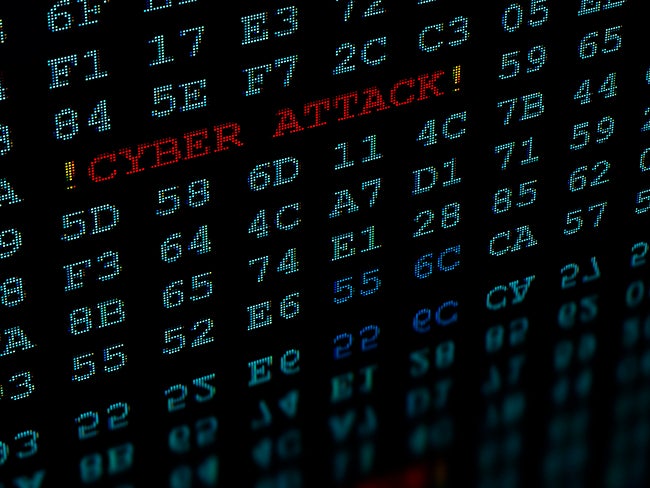Recently, Republican nominee Donald Trump has been claiming that the US elections are rigged – though he has presented no evidence to support these claims. These remarks are not original to Trump: They follow a long pattern of claims that “in-person” voter fraud will be rampant unless suppressive voter-ID laws are in place. This mythology persists despite the strong academic research which shows that in-person voter fraud does not empirically exist.
However, that said, this is the first election cycle occurring in the shadow of a well-publicized nation-state cyberattack on voter registration systems and email servers of one of the major political parties. US intelligence agencies identified evidence which link Russia to these sophisticated attacks. So, there is concern that our very election systems will be targets of nation-state hacking, and that the true outcome is at risk. This is a different kind of “rigging” – not the kind that Trump is talking about.
Paper can’t be hacked.[/quote_embed]
This is where paper comes in. Paper can’t be hacked. That is why for years a distinguished roster of computer scientists, including MIT professor and Turing award winner Ron Rivest, have recommended the use of paper ballots. Most state election policymakers know this, and have done the hard work of moving their state election equipment from unverifiable paperless systems, to systems that use paper ballots or print paper records. Paper can be recounted when election results are in doubt, or there are allegations that the “vote-counting system” has been hacked. Case in point: The Senate race between Norm Coleman and Al Franken in 2008. All of those ballots could be and were examined and re-examined..
In fact, this is not the first time election jurisdictions have been warned that they need to have paper ballots or records in case of human error, computer glitches, or – God forbid – hacking. After well-publicized incidents of voting machines losing thousands of votes like in North Carolina in 2004; or adding hundreds of “phantom votes” such as in Washington, DC in 2008; or switching votes, like in Palm Beach County in 2012; state policymakers have moved their states from paperless voting systems to paper ballot systems.
Paper is a critical fail-safe. In an upcoming review of election preparations in 11 swing states, Common Cause finds that eight use paper exclusively (CO, IA, MI, NH, NV, NC, OH, WI), two rely mostly on paper (FL, VA) and only one still has a majority of paperless systems statewide (PA). Across the nation, voting systems which produce a paper ballot or record are deployed in 35 states. In 10 states, there is a mix of paperless voting machines and those that produce a paper record. In five states, the systems are entirely paperless.
[quote_embed]There are other critical checks and balances in place to ensure that the election outcomes are correct.[/quote_embed]
There are other critical checks and balances in place to ensure that the election outcomes are correct. These include rigorous chains of custody requirements, pre-election testing of voting technology, ballot accounting and reconciliation procedures, and post-election audits which use the paper ballots to verify digital results.
Additionally, the Department of Homeland Security has offered state election directors new and important services and tools, including the following:
The Cyber Hygiene Assessment. This is a no-cost, voluntary, technical assessment encompassing configuration error and vulnerability scanning. Based on findings, DHS offers recommendations on fixing the vulnerabilities. This assessment is conducted remotely and on a recurring basis.
The Risk and Vulnerability Assessment (RVA) is a more in-depth, no-cost, voluntary technical assessment. This suite of services includes penetration testing, social engineering, wireless access discovery and identification, and database and operating system scanning.A joint letter signed by bipartisan House and Senate leadership urged state election directors to use these services. “States face the challenge of malefactors that are seeking to use cyberattacks to disrupt the administration of our elections. We urge the states to take full advantage of the robust public and private sector resources available to them,” they wrote.
[quote_embed]The silver lining in this important conversation on election integrity is that it has focused a laser lens on weaknesses in our current system.
Common Cause has put forth nine nonpartisan, commonsense solutions to help ensure a smooth election. Based on experience gleaned from several decades observing elections, it is particularly important that:
• Polling places have paper copies of ballots, poll books, and voter registration rolls in case of distributed denial of service attacks;
• Sufficient numbers of provisional ballots be kept on-hand at each polling place;
• Vote-counting systems must never be connected to the Internet. Online voting must be curtailed and if it is not curtailed, any ballots received through the internet must at least be quarantined;
• Robust post-election audits and reconciliation procedures must be conducted.
The silver lining in this important conversation on election integrity is that it has focused a laser lens on weaknesses in our current system. There is still room for improvement. Not all states have converted to paper ballots. State election audit laws must be improved. And most important, internet voting – casting votes by vulnerable email or through untested internet portals – should be curtailed. Thirty-two states allow military and overseas voters to cast ballots over the internet. These ballots cannot be made secure. They come through servers which states and counties cannot protect, and which computer scientists have routinely showed to be vulnerable to undetectable cyberattack. In future election cycles, we must find a better way to serve our military voters better than a system that allows their votes to so easily be altered.
Susannah Goodman, the director of voting integrity at Common Cause, is participating in the Aspen Institute Panel Discussion on Election Integrity. Watch the livestream on October 27.

